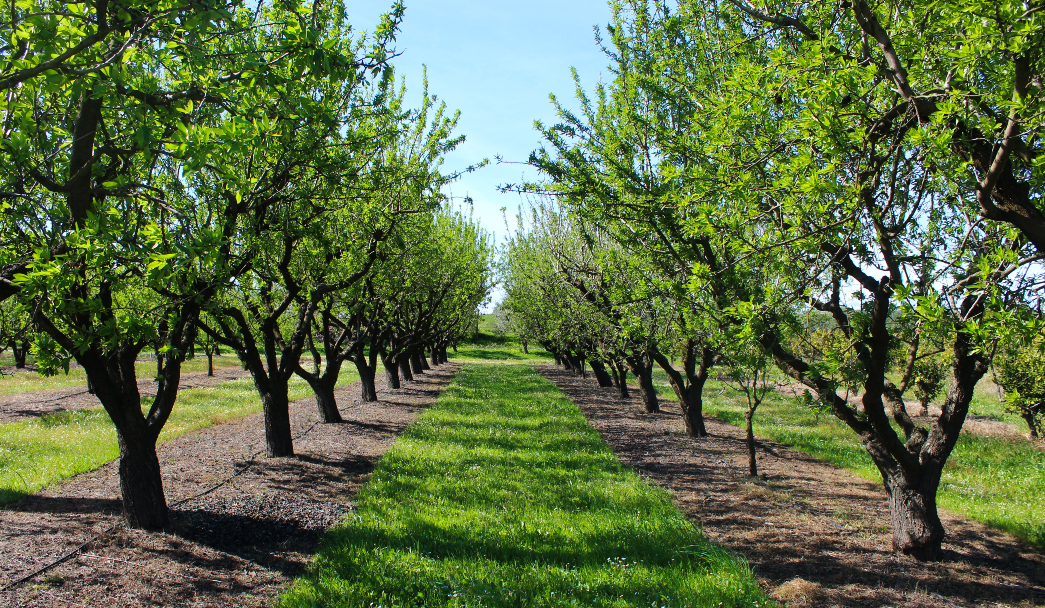In the Field with Meras Water Solutions

Agriculture water treatment service technicians leave no surprises when managing your field. In the world of agriculture water treatment farm managers are often left wondering exactly what their agriculture water treatment service technicians did during their time in the fields and confused about the resulting data they receive. At Meras Water Solutions, we never want to leave our customers in the dark. So, allow me to invite you on a simple walk through your own fields with one of our agriculture water treatment service technicians. We want to show you why you are in good hands with us.
As our service team enters your field, they make a physical inspection of the crops and wetting patterns in the soil. Are there dry leaves in the middle of an irrigation set? Is the bark of the tree’s brittle or unhealthy? Are the wetting patterns consistent with the spacing of the emitters? Any abnormalities are noted and investigated further. We aim to get to know each block as well as you do so that we can assess your crop’s health accurately.
When we reach the system, we are scheduled to service, we first ensure that the micro-irrigation system is active and running. Then, we inspect the physical components for any breakage or leaks. Everything from the flow switch to the registers is carefully observed. We also test your flow rate and check if a distribution uniformity (DU) has been performed. We usually schedule an initial DU to get a base score of your irrigation system.
Distribution uniformity
Distribution Uniformity (DU) is extremely important to your operations. This test allows us to get an overview of your system’s health easily and accurately. It tells us exactly how irrigated water is being applied across your field indicating if there is a plugging issue, a leak, or any other abnormality that could potentially prove fatal to your crops. We aim to see a Distribution Uniformity (DU) score of >90 to ensure that your system is optimized. It also serves as a baseline measurement that we can compare later data to as your season progresses.
Once testing is complete, an agriculture water treatment service technician measure your chemical levels. We compare the current ratio of chemicals to the prescription rate that was developed for your unique farm by your sales representative. This is also when we validate that the chemical ratio is optimal for the current stage your crop is in or recommend appropriate changes.
Micro- Irrigation hose inspection
Now, we physically inspect multiple hose-ends at regular intervals in your micro-irrigation system. By opening the hose ends and allowing irrigation water to collect in a clean, white cup, we can inspect it for biofilm and debris. Impurities can mean a host of issues that we address before they begin to affect your crops. It can also indicate to us that we should adjust chemical application rates.
Before we prepare to leave your field, we inspect on-sight chemical drums. We replenish any supply that is low to anticipate supply issues. If we do not have the specific chemical in the amount you need on hand, we schedule a chemical service drop-off as soon as possible.
Drip Service Report
Lastly, our technicians fill out a full report or DSR. This report allows us to document our visit and gathered data all in one place. This data can then be used to adjust your chemical deliveries, inform your testing schedule, and validate our agriculture water treatment plan. This is an at-a-glance report that details product and water usage, chemical levels and other miscellaneous notes and observations that the service technician finds useful.
The route we take as we exit your fields is purposeful. We travel in the opposite direction than we entered if possible so that we can continue our visual inspection of your fields. Once again, we watch for signs of irrigation issues and unhealthy crops. Here and there, we also take a moment to appreciate the amount of demanding work and dedication that goes into keeping these vast fields healthy and thriving. For us, it is a testament to our partnership and the good we can do when we work together.
Meras field technicians walk in step with you for a reason. We look at your fields as one of our own and we treat it as such. With us, you will never be left wondering because we make it a priority to take the worry about your irrigation system off your plate, not off your mind.
